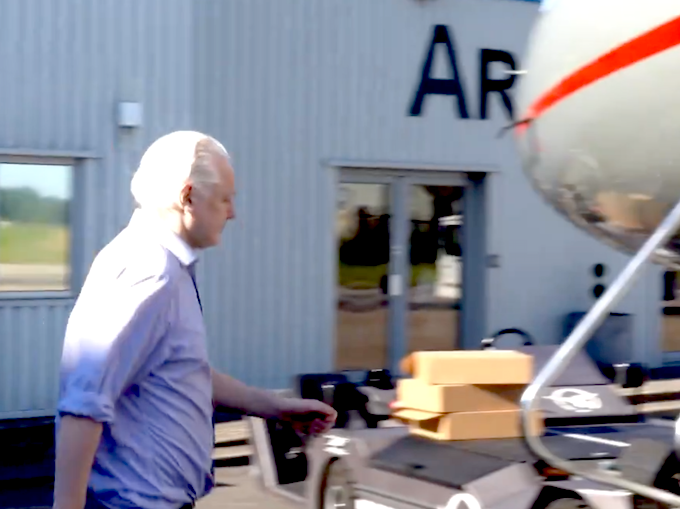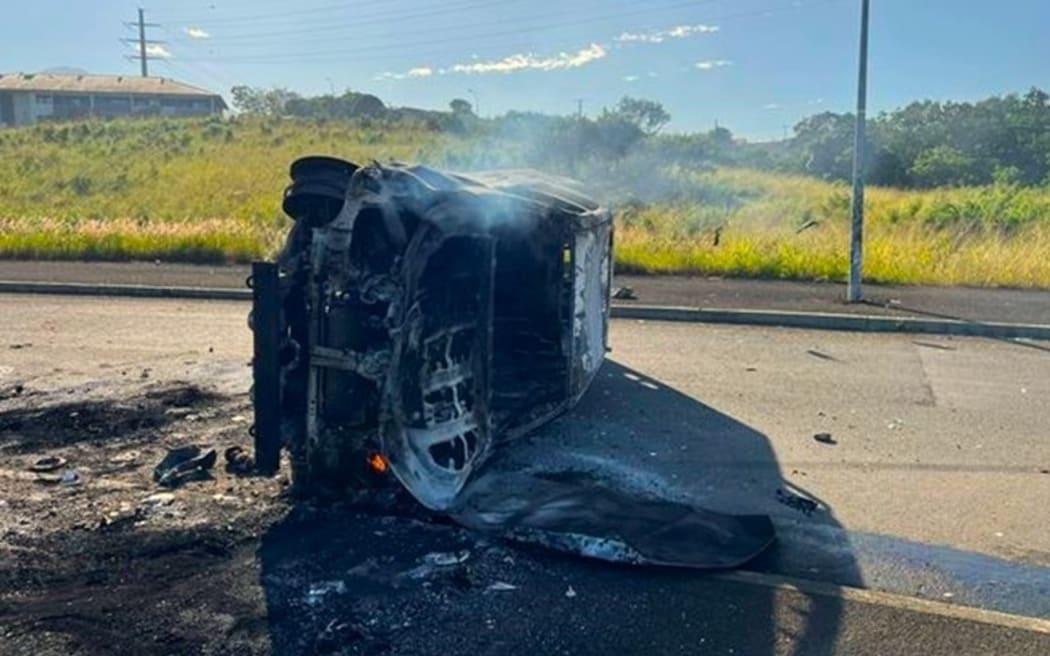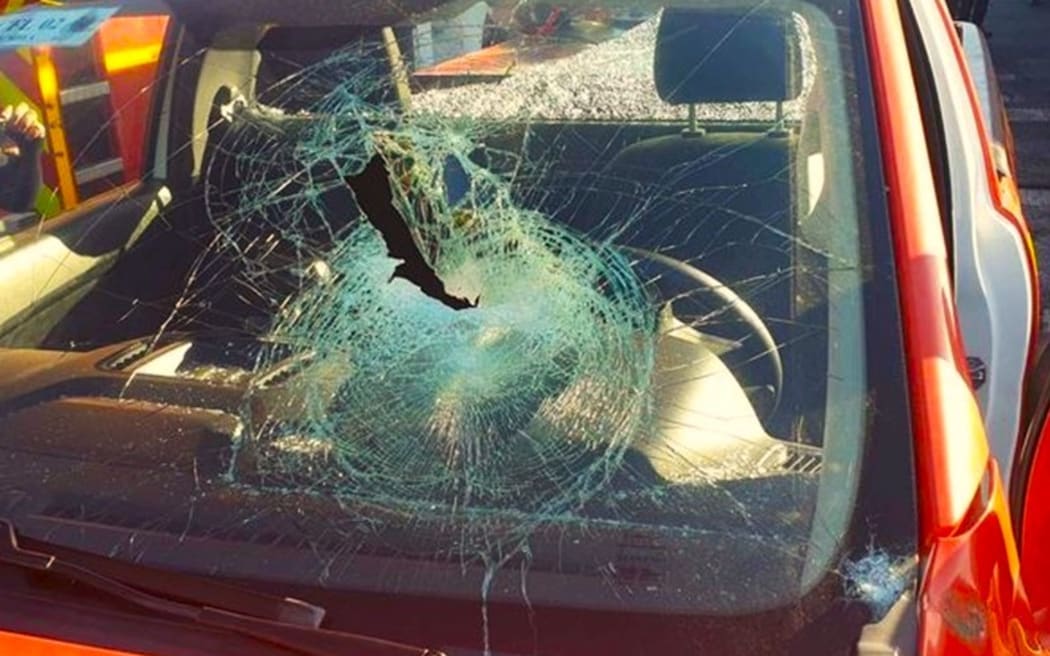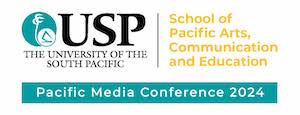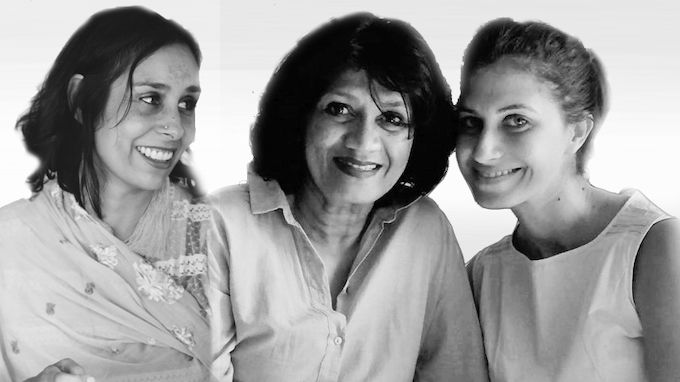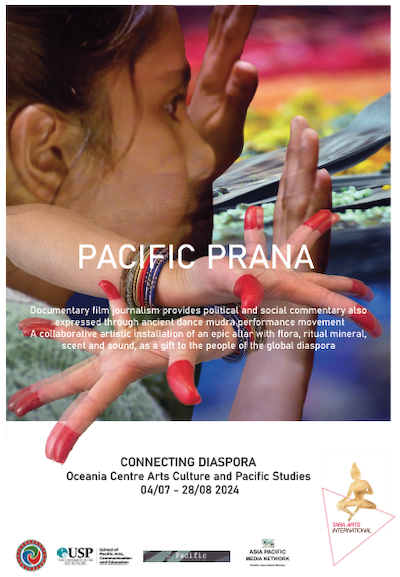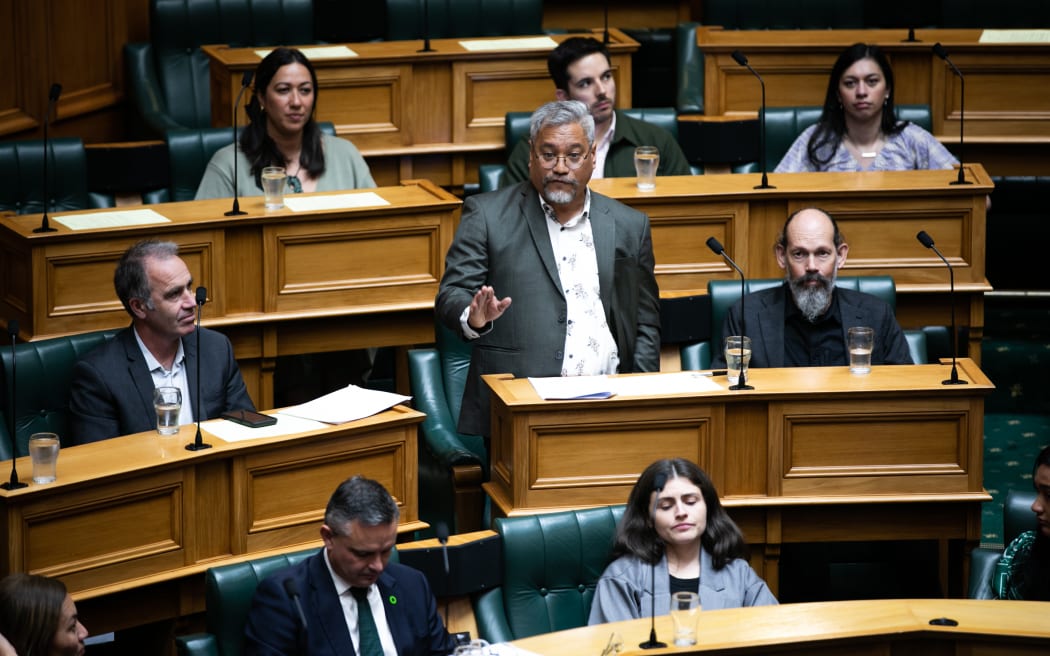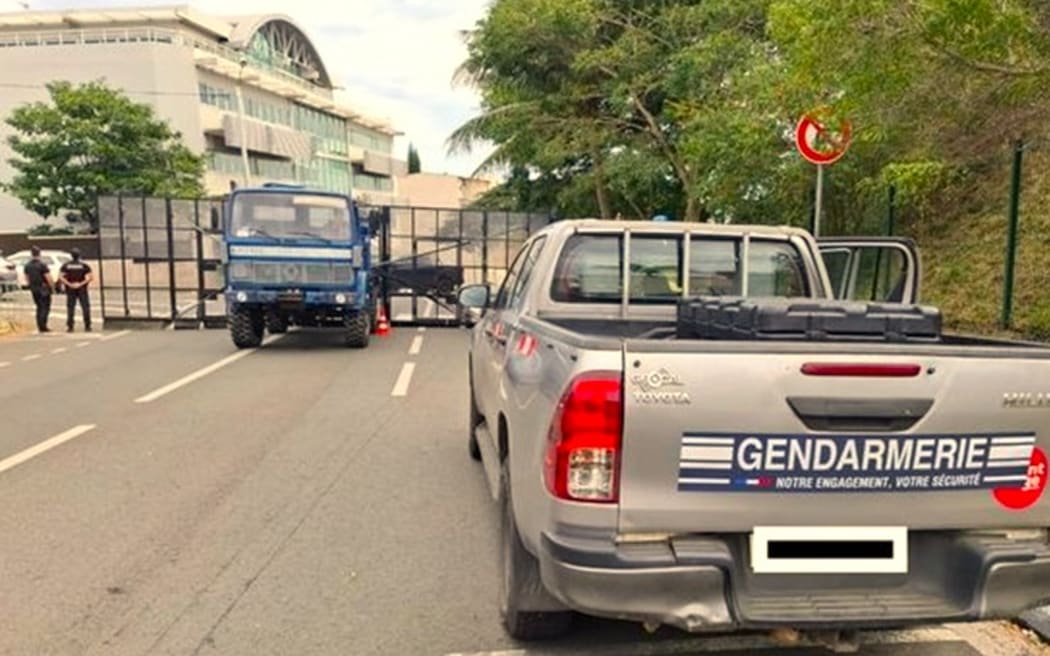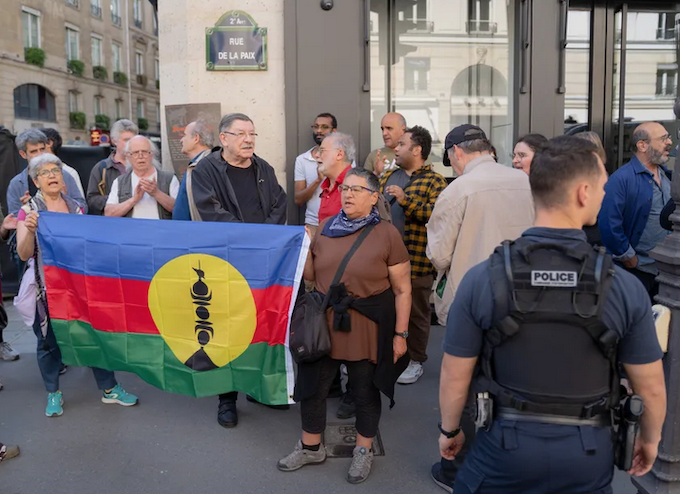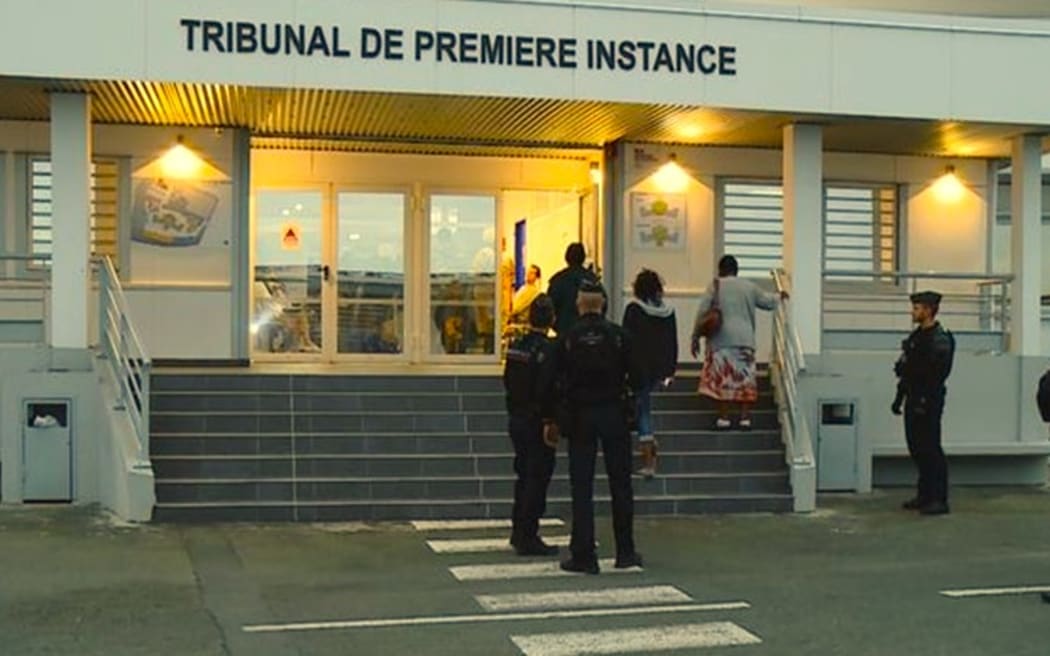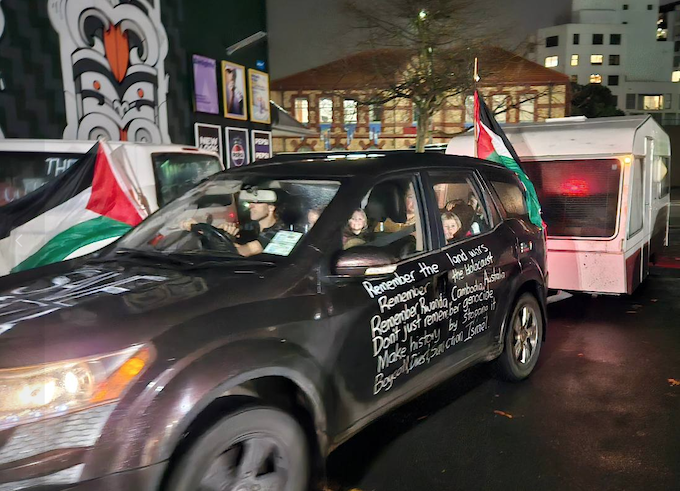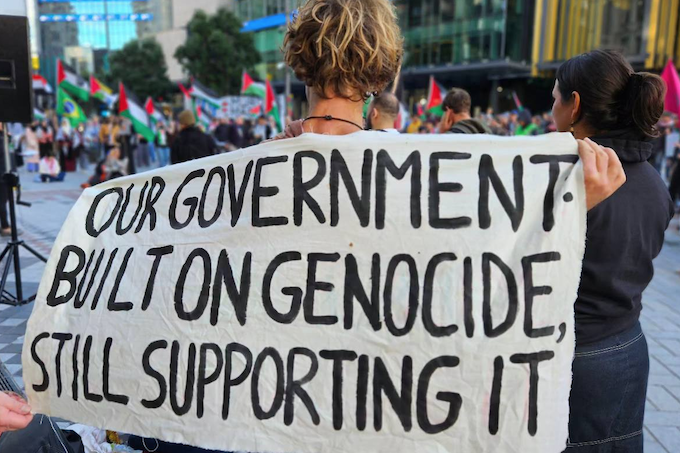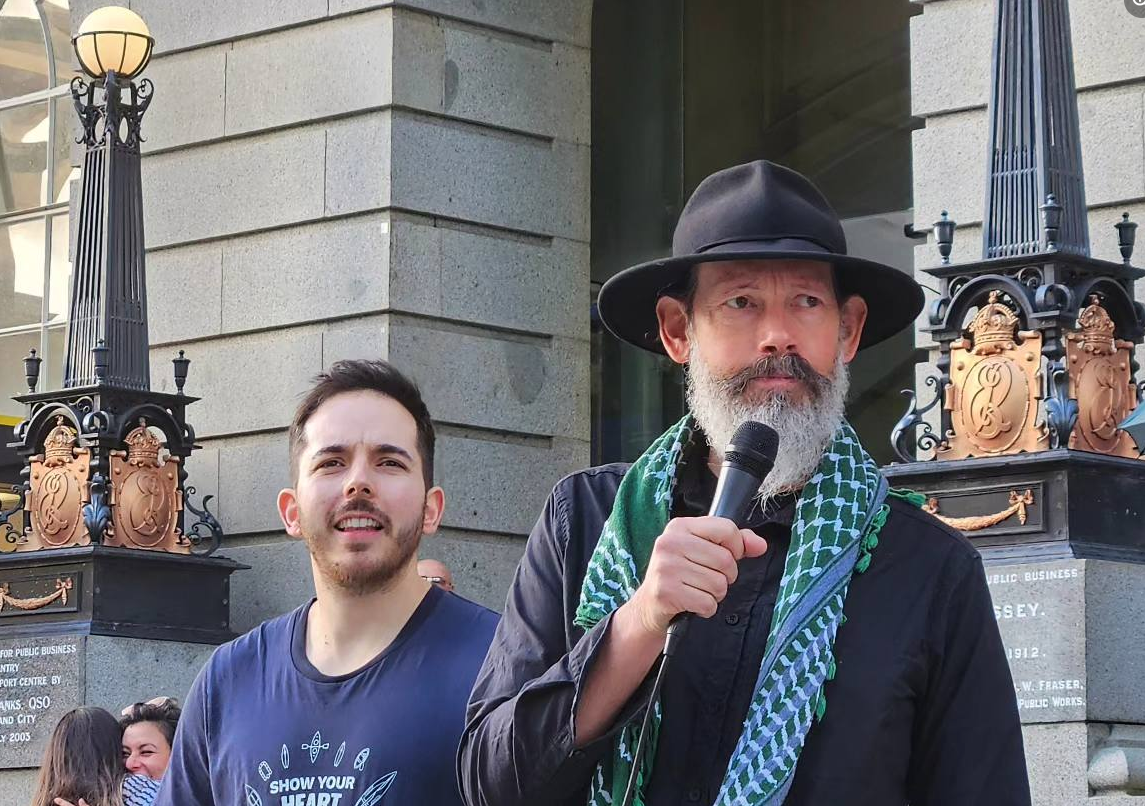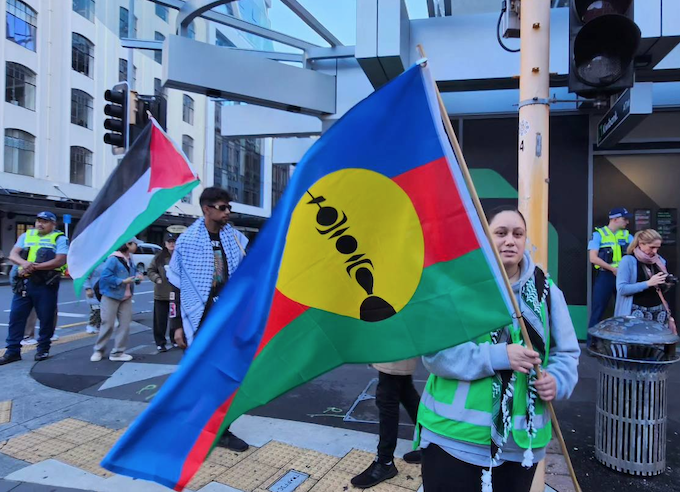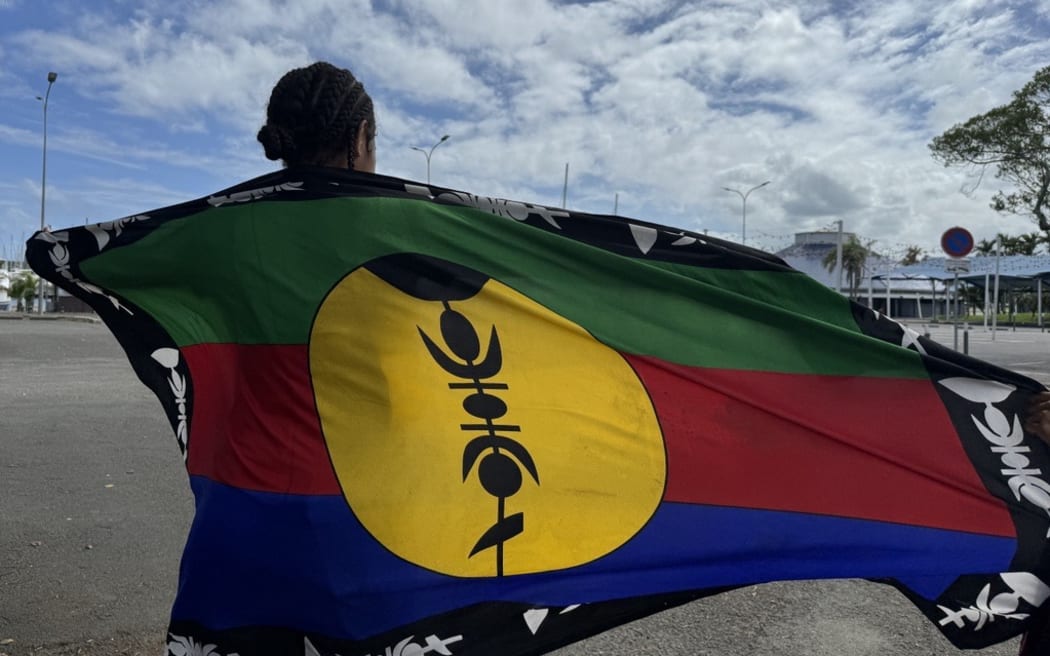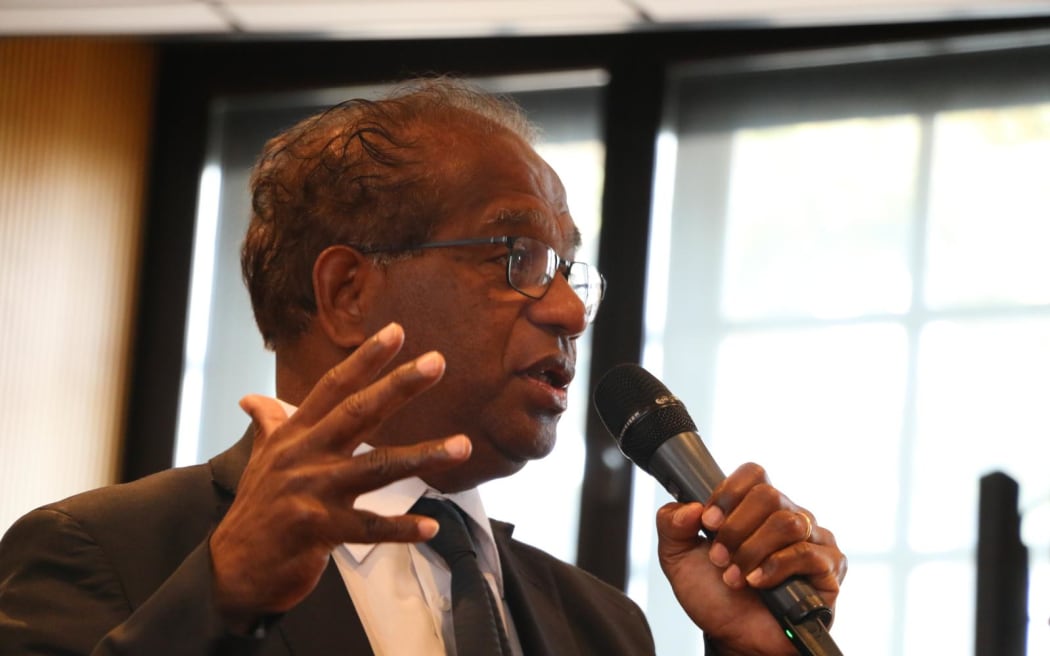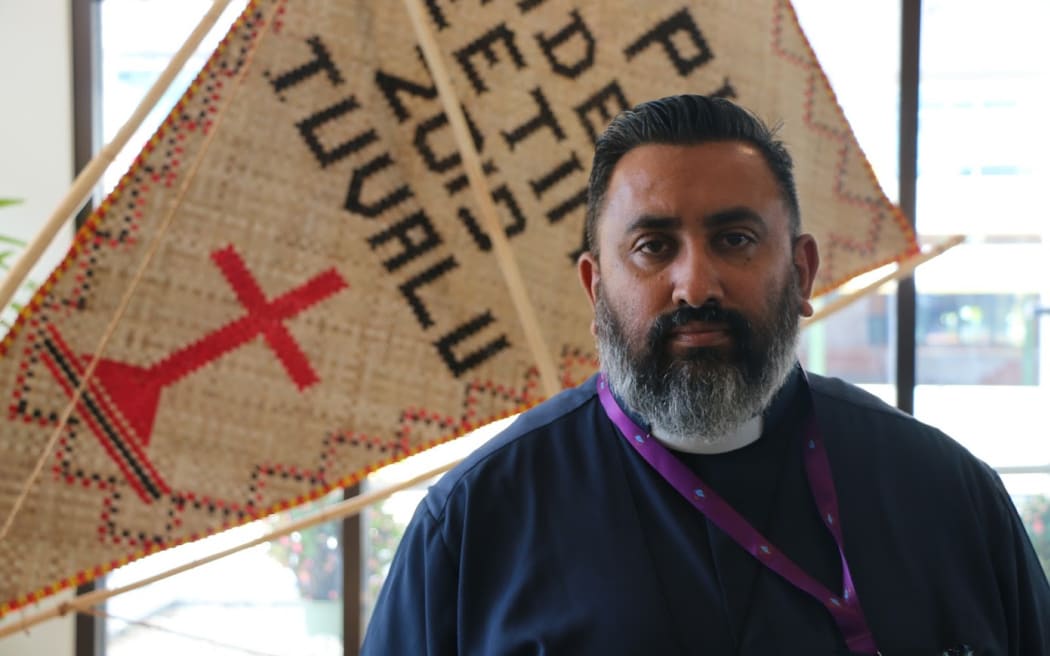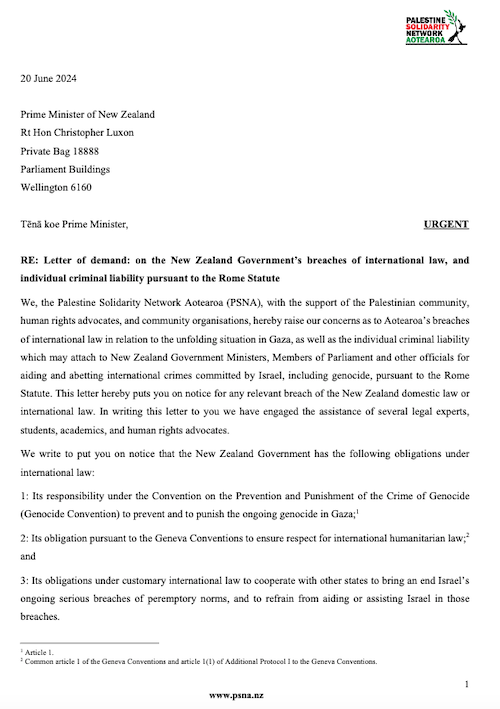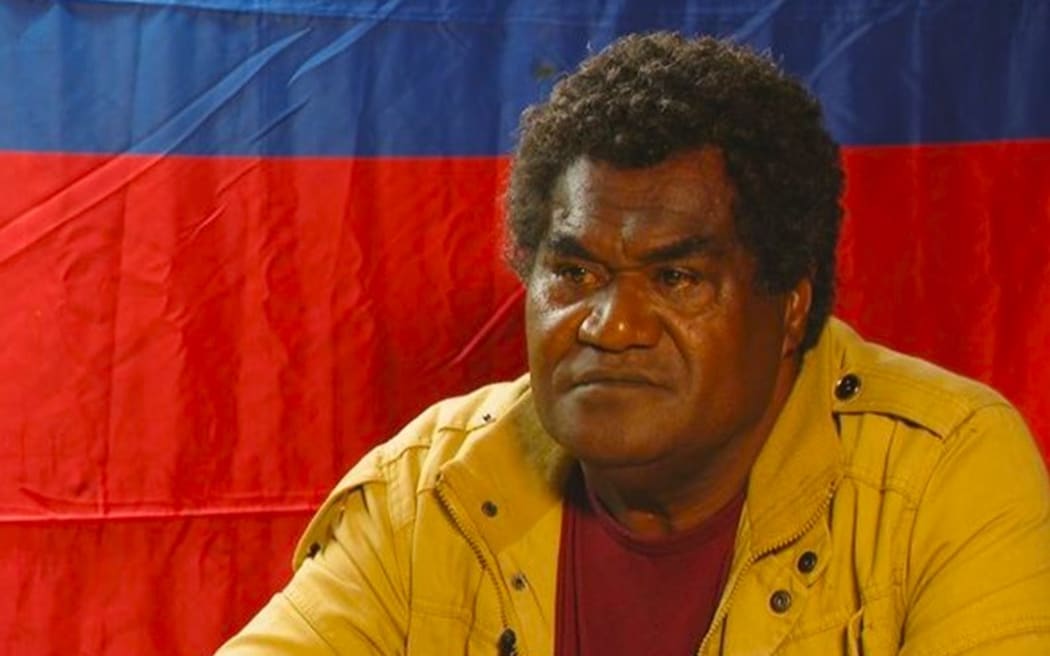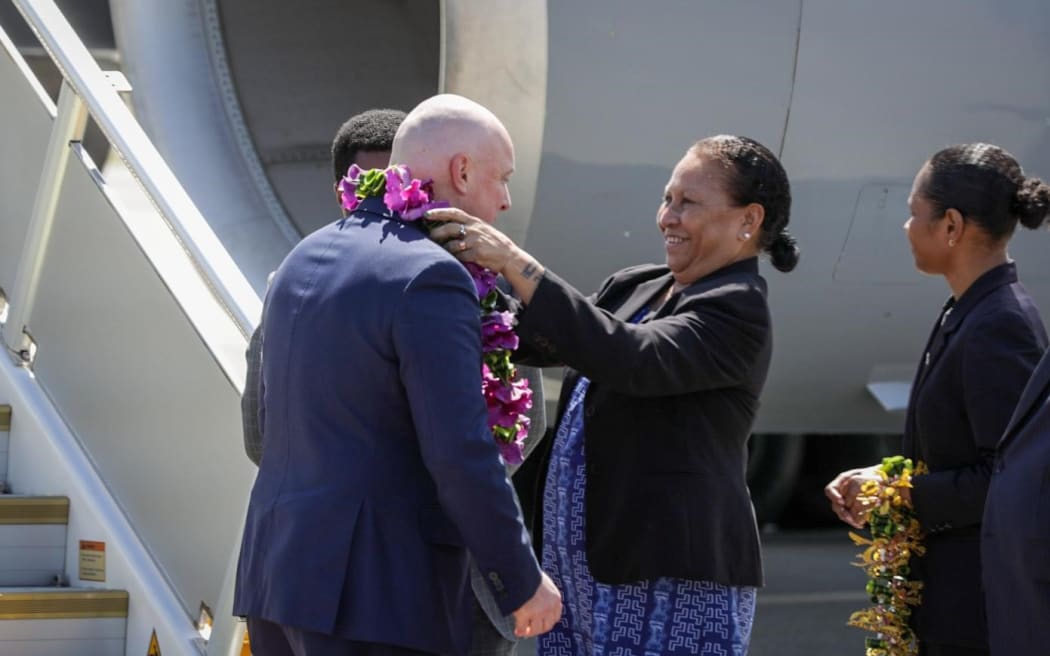COMMENTARY: By Savanna Craig
On the morning of April 15, I headed to a branch of Scotiabank in downtown Montreal to cover a pro-Palestine protest. Activists had chosen the venue due to the Canadian bank’s investments in Israeli defence company Elbit Systems.
I watched as protesters blocked the bank’s ATMs and teller booths and the police were called in.
Police officers showed up in riot gear. When it was announced the activists were going to be arrested, I didn’t expect that I would be included with them.
Despite identifying myself as a journalist numerous times and showing officers my press pass, I was apprehended alongside the 44 activists I was covering. It was inside the bank that I was processed and eventually released after hours of being detained.
I now potentially face criminal charges for doing my job. The mischief charges I face carry a maximum jail sentence of two years and a fine of up to C$5000 (NZ$6000). I could also be restricted from leaving the country.
Canadian police can only suggest charges, so the prosecution has to decide whether or not to charge me. This process alone can take anywhere from a few months to a year.
I am the second journalist to be arrested in Canada while on assignment since the beginning of 2024.
Arrested over homeless raid
In January, journalist Brandi Morin was arrested and charged with obstruction in the province of Alberta while covering a police raid on a homeless encampment where many of the campers were Indigenous. It took two months of pressure for the police to drop the charges against her.
Over the past few years, a pattern of arrests has emerged, with police specifically targeting journalists working freelance or with smaller outlets. Many of these journalists have been covering Indigenous-led protests or blockades.
Often they claim that the media workers they have come after “do not look like journalists”.
The Canadian police continue to use detention to silence and intimidate us despite our right to free speech under the Canadian Charter of Rights and Freedoms. To specify, under section two of the charter, Canadians’ rights to freedom of thought, belief and expression are protected.
The charter identifies the media as a vital medium for transmitting thoughts and ideas, protecting the right for journalists and the media to speak out.
Furthermore, a 2019 ruling by a Canadian court reasserted the protection of journalists from being included in injunctions in situations where they are fulfilling their professional duties.
The court decision was made in the case of journalist Justin Brake, who was arrested in 2016 while documenting protests led by Indigenous land defenders at the Muskrat Falls hydro project site in Newfoundland and Labrador. Brake faced criminal charges of mischief and disobeying a court order for following protesters onto the site, as well as civil contempt proceedings.
Victory for free press
Despite Brake’s victory in the court case, journalists have still been included in injunctions.
In 2021, another high-profile arrest of two Canadian journalists occurred in western Canada. Amber Bracken and Michael Toledano were documenting Indigenous land defenders protecting Wet’suwet’en territory near Houston, British Columbia, from the construction of the Coastal GasLink pipeline when they were arrested.
They were held in detention by the Royal Canadian Mounted Police (RCMP) for three days until they were released.
In an interview, Toledano said he and Bracken were put in holding cells with the lights on 24 hours a day, minimally fed and denied access to both toothbrushes and soap.
“We were given punitive jail treatment,” Toledano explained. They faced charges of civil contempt which were dropped a month later.
Even though I knew about these cases, had analysed numerous press freedom violations in Canada over the last few years, and had researched the different ways in which journalists can experience harassment or intimidation, nothing prepared me for the experience.
Since I was arrested, I have not had the same sense of security I used to have. The stress, feeling like I have eyes on me at all times and waiting to see whether charges will be laid, has taken a mental toll on me.
Exhausting distraction
This is not only exhausting but it distracts me from the very important and essential work I do as a journalist.
I have also, however, received a lot of support. It has been genuinely heartwarming that Canadian and international journalists rallied behind me following my arrest.
Journalists’ solidarity in such cases is crucial. If just one journalist is arrested, it means that none of us are safe, and the freedom of the press isn’t secure.
I know that I did nothing wrong and the charges against me are unjust. Being arrested won’t deter me from covering blockades, Indigenous-led protests or other demonstrations. However, I am concerned about how my arrest may discourage other journalists from reporting on these topics or working for independent outlets.
I have been covering pro-Palestine activism in Montreal for eight years, and more intensely over the last eight months due to the war in Gaza. For years I have been one the few journalists at these protests, and often, the only one covering these actions.
The public must see what’s happening at these actions, whether they are pro-Palestine demonstrations opposing Canada’s role in Palestine or Indigenous land defenders opposing construction on their territory.
Regardless of its judgment on the matter, the Canadian public has the right to know what fellow citizens are protesting for and if they face police abuses.
Held to account
The presence of a journalist can sometimes be the only guarantee that police and institutions are held to account if there are excesses.
However, there is a clear lack of political will among officials to protect journalists and make sure they can do their work undisturbed.
Montreal Mayor Valerie Plante did not denounce my arrest or urge police to drop my charges. Instead, when asked for a comment on my arrest, her office stated that press freedoms are important and that they will allow police to carry out their investigation.
Just one city councillor wrote to the mayor’s office urging for my arrest to be denounced. Local politicians have also been largely mute on detentions of other journalists, too, with few exceptions.
The comment from the mayor’s office reflects the attitude of most politicians in Canada, who otherwise readily declare their respect for freedom of expression.
On May 3, World Press Freedom Day, Canadian Prime Minister Justin Trudeau put out a statement saying that “journalists are the bedrock of our democracy”.
Yet he never took a stance to defend Morin, Brake, Bracken, Toledano and many others who were arrested while on assignment. He, like many other politicians, falls short on words and action.
Until concrete steps are taken to prevent law enforcement officers from intimidating or silencing journalists through arrest, press freedom will continue to be in danger in Canada.
Journalists should be protected and their chartered rights should not be disregarded when certain subjects are covered. If journalists continue to be bullied out of doing their work, then the public is at risk of being kept in the dark about important events and developments.
Savanna Craig is a reporter, writer and video journalist covering social movements, policing and Western imperialism in the Middle East. Republished from Al Jazeera under Creative Commons.
This post was originally published on Asia Pacific Report.
